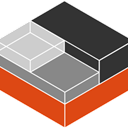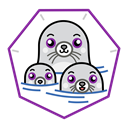Top Docker Alternatives for Enhanced Containerization
Docker has revolutionized how developers deploy their applications, making entire development environments portable and easy to manage. Many swear by its ease of use compared to other container software, offering robust virtualization capabilities across all major operating systems. However, while Docker is powerful, there are compelling reasons to explore other options. Whether you're looking for self-hosting solutions, support for specific systems like FreeBSD, or simply a different approach to containerization, a robust Docker alternative might be the perfect fit for your workflow.
Top Docker Alternatives
While Docker remains a dominant force, the ecosystem of containerization and development platforms has expanded significantly. Here are some of the best alternatives that offer unique features, improved performance, or a different philosophy to container management.

Nanobox
Nanobox distinguishes itself as a platform that handles DevOps for you, allowing developers to focus solely on code. It creates consistent, isolated development environments that can be easily shared and deployed to any host (AWS, Digital Ocean, Azure, Google, etc.). Available as Commercial and Open Source software for Mac, Windows, Linux, and Web, Nanobox offers features like automated deployment, cloud coding, DEV/OPS setup, developer tools, an IDE, and works offline, making it a comprehensive Docker alternative.

rkt
rkt is a next-generation container manager specifically designed for Linux clusters, prioritizing security, simplicity, and composability. As a Free and Open Source solution for Linux, rkt can run containers with varying degrees of protection, from lightweight OS-level isolation to heavier VM-level hardware virtualization. It serves as an excellent Docker alternative for those seeking robust security features and flexible isolation options.

Singularity
Singularity provides a virtual environment for applications without the performance penalties typically associated with full virtual machines. This Free and Open Source platform, available for Mac, Windows, and Linux, simplifies application deployment across diverse clusters and supercomputers by creating single-file containers. It's a strong Docker alternative for users needing simplified deployment and efficient containerization without hardware virtualization overhead.

LXC Linux Containers
LXC (Linux Containers) is a lightweight, Linux kernel-based virtualization solution. It allows you to run multiple isolated Linux distributions simultaneously on top of a single operating system. Unlike KVM, LXC doesn't emulate hardware but shares the same kernel namespace, similar to chroot. As a Free and Open Source option for Linux, it provides container virtualization and sandboxing, making it an efficient Docker alternative for Linux-centric environments.

OpenVZ
OpenVZ is a container-based virtualization solution exclusively for Linux. It creates multiple secure, isolated Linux containers (VEs or VPSs) on a single physical server, improving server utilization and preventing application conflicts. Each container functions like a standalone server with independent reboot capabilities, root access, and dedicated resources. As a Free and Open Source Linux-based platform offering container virtualization, OpenVZ is a robust Docker alternative for efficient server resource management.

Podman
Podman is a daemonless container runtime designed for managing containers, pods, and container images. It serves as a counterpart to CRI-O, offering low-level debugging not accessible through the CRI interface used by Kubernetes, but can also operate independently. As a Free and Open Source solution for Linux, Podman offers a lightweight and flexible container management experience, making it an excellent Docker alternative, especially for those looking to avoid a daemon-based architecture.

Apache Mesos
Apache Mesos is a powerful cluster manager that simplifies the complexities of running applications on a shared pool of servers. As a Free and Open Source platform available for Mac and Linux, it provides features like hypervisor capabilities, operating system management, and virtualization for virtual machines. While not a direct container runtime like Docker, it's a valuable Docker alternative for large-scale cluster management and resource orchestration.

Deis
Deis is an open-source PaaS (Platform as a Service) that leverages Docker, CoreOS, and Heroku Buildpacks to provide a lightweight and flexible private application platform. Available as a Free and Open Source solution for Linux, Deis supports Docker and offers hypervisor, operating system, virtual machine, and general virtualization features. It's a robust Docker alternative for developers seeking a PaaS built on container technologies, offering extensive control over their application deployments.

Turbo.net Client
The Turbo.net Client allows you to package applications and their dependencies into lightweight, isolated virtual environments called containers. These containerized apps can run on any machine with the client installed without affecting the underlying OS, eliminating install issues, conflicts, and missing dependencies. Available as Freemium and paid options for Mac, Windows, Android, and iPad, it offers support for Docker and hypervisor features, making it a versatile Docker alternative for application packaging and portability.
The world of containerization is vast and continually evolving. While Docker offers an excellent entry point, exploring these alternatives can help you find a solution that precisely matches your technical requirements, operational preferences, and budget. We encourage you to delve deeper into each option to discover the best fit for your next project.